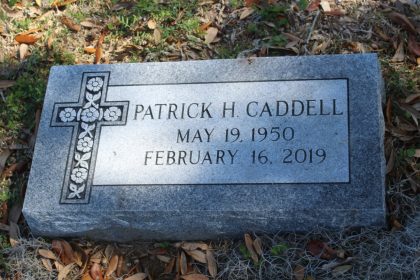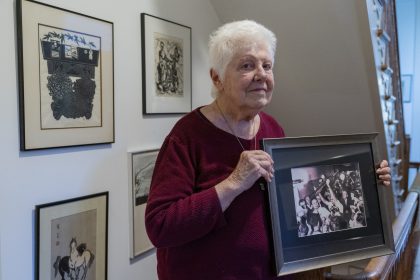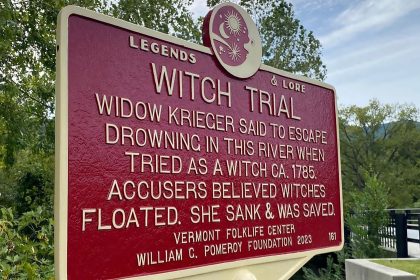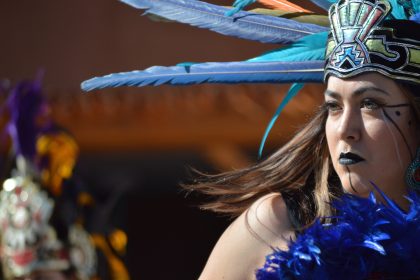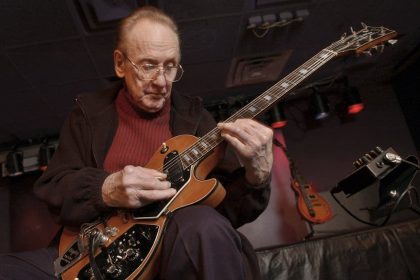Middle Schoolers Secure Exoneration for Last ‘Salem Witch’
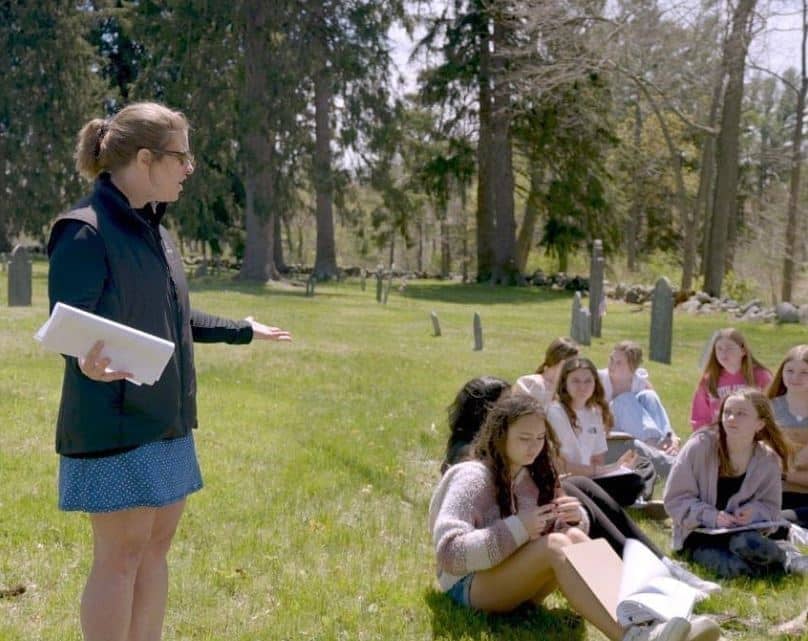
BOSTON — At long last, perhaps, Elizabeth Johnson Jr. can rest in peace.
Last week, some 329 years after she was convicted of being a witch at the infamous Salem witch trials, Massachusetts Gov. Charlie Baker formally pardoned her, doing so via an amendment tucked into the state’s $52.7 billion spending plan for fiscal year 2023.
The witch trials have long been considered one of the biggest miscarriages of justice in the early history of what were then still “the colonies” of Great Britain.
Several events are now said to have set the stage for the witch trials held in Salem Village (now Danvers, Massachusetts) in 1692 and 1693. First, there was the so-called witchcraft “craze” that began in Europe and stretched into the late 1600s.
Then, in 1689, William and Mary, the joint rulers of England, Scotland and Ireland, declared a war on France that was largely found in the American colonies. The war ravaged large portions of New York state, Nova Scotia and Quebec, and sent waves of refugees scurrying into the Massachusetts Bay Colony for safety and protection.
The influx of refugees strained local resources, and fighting and jealousies among the well-to-do in town became commonplace.
Finally, there was the arrival of Rev. Samuel Parris, who became Salem’s first ordained minister just as the war was getting underway.
Parris was not a popular figure, as even the Puritan’s who made up the majority of Salem’s population found him too rigid and set in his ways.
Inevitably, many people began to view these arguments and misfortunes as the work of the devil. But things really came to a head in January 1692, when Parris’ daughter, Elizabeth, then 9, and niece, Abigail Williams, 11, started experiencing unexplained fits and convulsions.
Shortly thereafter, another girl, Ann Putnam, 11, began to experience similar episodes.
Unable to help them, a local doctor declared their conditions were caused by the supernatural. As they slowly began to recover on their own, and under pressure from local magistrates, the girls blamed three women for afflicting them with the “devil’s magic.”
The women — Tituba, the Parris’ Caribbean slave; Sarah Good, a homeless beggar; and Sarah Osborne, an elderly impoverished woman known for arguing publicly with her husband — were subsequently tried and imprisoned. Over the course of the next year, more than 200 other people were also accused of practicing witchcraft in Salem and neighboring communities, with at least 20 people being executed.
Disability Likely Behind Town Making Her A Victim
At the time, Elizabeth Johnson lived in Andover, Massachusetts. While it’s not clear why she was targeted as a “witch,” historians have conjectured the 22-year-old woman may have had a disability of some sort.
According to the website The Last Witch, the title of an upcoming documentary telling Johnson’s story, she was the granddaughter of one of Rev. Frances Dane, the elder of two reverends in Andover.
Johnson was arrested in August 1692, and quickly confessed. But by the time her trial actually took place, on Jan. 11, 1693, she had decided to change her plea to not guilty. It didn’t change the outcome of her trial.
Of the three women tried that day, Elizabeth Johnson Jr. was the only one who was found guilty of witchcraft and sentenced to hang.
“Why Elizabeth was not cleared then is anyone’s guess, but she was somehow different, which could have played a part,” the website says. “Her grandfather Reverend Francis Dane had made a statement shortly before her trial calling her “simplish at best,” which was reinforced by Robert Calef, a cloth merchant in colonial Boston, who wrote in 1700 that she was “senseless and ignorant.”
In all, 28 members of her extended family faced similar allegations, including her mother, several of her aunts and her grandfather.
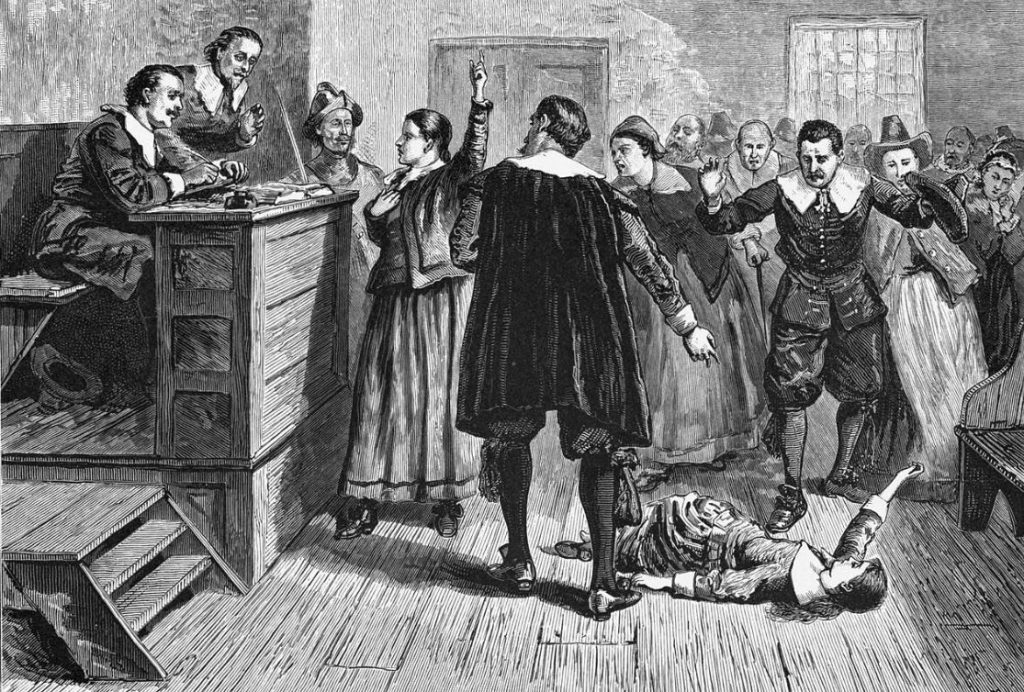
At that point, and perhaps for the only time in her life, Johnson got lucky. Her trial happened to coincide with Massachusetts Gov. William Phips deciding to put an end to the witch hunts.
As part of that effort, he wound up staying her execution but for some reason did not clear her of the charges.
Little is known of her life after her conviction. It is known that she never married or had children.
In addition, according to “The Last Witch” website, in the eyes of colonial law, “someone who was convicted of witchcraft was considered ‘dead’ and could not own property.”
At one point in the early 1700s, Johnson’s brother petitioned for restitution of fees paid on her behalf to cover her stay in jail.
In 1702, hoping to somewhat expunge their legacy, the General Court of Massachusetts declared that the trials had been unlawfully held. Nine years later the colony passed legislation overturning the witchcraft convictions of 22 individuals.
Evidently inspired by this action, Johnson herself soon filed a petition to clear her name as others had been, but by that point, the community had moved on from the trials that were by then a source of shame and embarrassment, and Johnson’s request was left unfulfilled.
She was 77 when she died in 1747, and it would still be more than a century before she had a shot at official redemption.
In 1957 a resolution passed in the Massachusetts Legislature, exonerating additional individuals, and an update in 2001 exonerated still more.
However, for some unknown reason, Elizabeth Johnson Jr. still kept being left out. Johnson is the last accused witch to be cleared, according to Witches of Massachusetts Bay, a group devoted to the history and lore of the 17th century witch hunts.
Some historians have asserted it is because she had the same name as her mother, who was also convicted. Others contend it was simply because she had no known descendants to advocate on her behalf.
A Teacher and Her Students Work to Right History
That changed in 2019, after Carrie LaPierre, a civics teacher at North Andover Middle School, began talking to her eighth grade class about the case.
Inspired, they quickly dove into Johnson’s story and embarked on a petition drive to clear her name.
From there, the class drafted an actual bill for the Legislature’s consideration, and began making presentations to lawmakers, hoping to get them on board.
Among those who heeded their call was Democratic state Sen. Diana DiZoglio, who joined the exoneration effort, and who added the amendment to the judiciary section of the state’s latest budget bill.
“While we’ve come a long way since the horrors of the witch trials, women today still all too often find their rights challenged and concerns dismissed,” DiZoglio told the Massachusetts State House News Service.
“There continue to be great injustices, with attacks on women and on the rights of marginalized populations. It was unacceptable then and remains unacceptable now, that she and other women have been considered unworthy of the dignity and respect they deserve,” she said.
In a statement released prior to the governor signing the bill, LaPierre praised her students for taking on “the long-overlooked issue of justice for this wrongly convicted woman.”
Afterwards, she told The New York Times she was “excited and relieved” the exoneration had finally come to pass, but expressed a little disappointment that it came when her students are on summer vacation and that they didn’t get to share in their accomplishment together.
Documentary in the Works
If Johnson’s exoneration has a bit of serendipity to it, so too does the ongoing making of the documentary about her.
As Annika Hylmö, writer and director of The Last Witch explained to The Well News via email, she and her documentary team got involved in the student’s effort last fall.
“Cassandrea Hesseltine [a distant relative of Johnson’s and producer of the project] and I had been researching the North Andover side of the Salem Witch Trials for a different project after meeting happenstance in the bathroom during the Sundance Film Festival right before the pandemic broke out,” Hylmö said.
“We spent all of lockdown learning and discovering stories around the trials when I came across a few articles about Carrie LaPierre and her 8th grade middle school students and their efforts to clear Elizabeth Johnson Jr. I brought the articles to Cassandra, who quickly agreed with me that we ought to do a documentary about the story as a companion piece to our other project.”
The two quickly reached out to both LaPierre and DiZoglio, both of whom embraced the prospect of a documentary.
“Personally, there are many reasons for telling this story, and the reasons change as our world changes, but at the heart of it it’s a story of a forgotten woman (Elizabeth) who is recognized many years later by someone (Carrie) who might seem to be insignificant but really holds the power in her hand to change history,” Hylmö said.
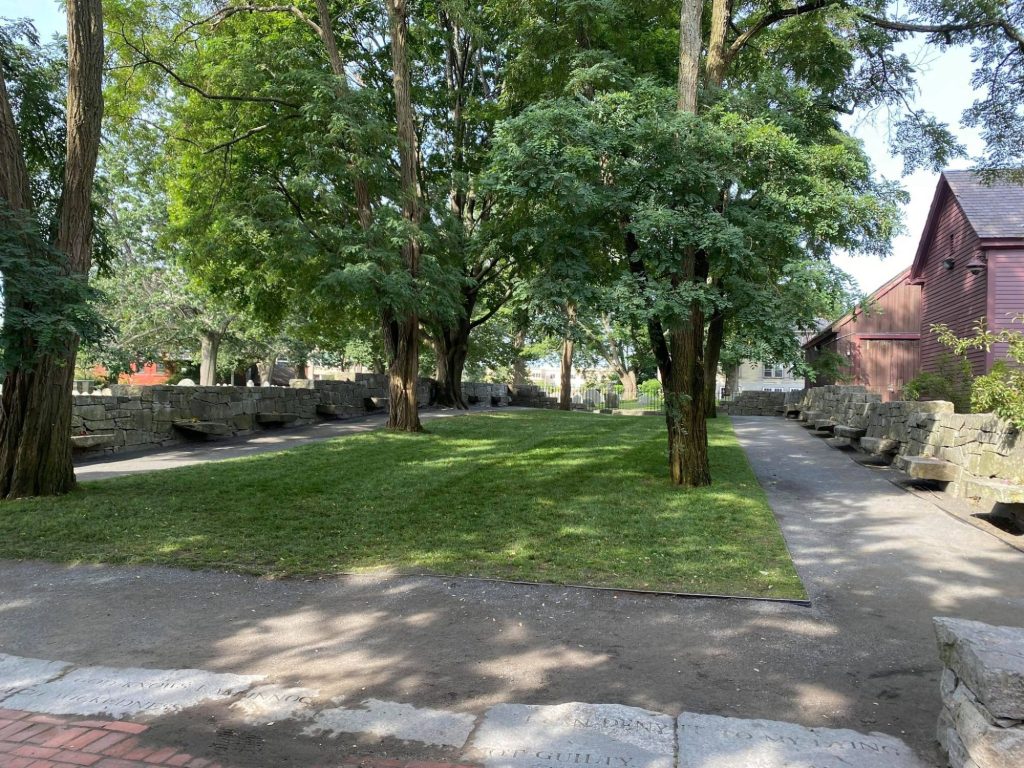
“It speaks to the power that each of us as humans have to inspire others and to be inspired ourselves when we stand up for justice and give voice to the voiceless. That is the real magic that we all possess,” she said.
Hylmö reported that so far, the reception to the making of the documentary “has been incredible.”
“We were filming in North Andover and Salem in May and all of a sudden we were the talk of the town,” she said. “We are still in production and everyone that we mention the film to agrees that it is a story that needs to be told and that they want to see and be inspired by.
“That reaction, just like the reaction to Elizabeth’s story of exoneration, comes from around the world – Indonesia, Brazil, China, Germany, Italy, Britain, and of course all over the United States. People are astonished that it has taken 329 years to clear her and often want to talk about the numerous social issues that her story impacts.”
Hylmö said it was an incredible feeling when she and the others involved learned the exoneration had come to pass.
“I talked with Carrie earlier today and we still can’t quite believe it,” she said. “In many ways, July 28 2022 marks the end of the Salem Witch Trials.
“Of course, one of the incredible elements to the Salem Witch Trials is the connection to Sir Matthew Hale and the reference made to his 17th century judgments in the recent overturning of Roe v Wade,” Hylmö continued. “Elizabeth was unmarried, had no children and no one to speak for her. Like many others who were different back then, she was an easy target.
“The same applies today. With everything that is going on, for example, women (especially unmarried women) earn less money and are more economically vulnerable than others, while childless women still face stigma. Meanwhile, witch hunts still exist around the world … so there are a lot of correlations between then and now, which we will explore in our documentary,” she said.
Apart from Johnson’s story, but nevertheless related, efforts are now underway to exonerate the 46 people wrongly charged with witchcraft in neighboring Connecticut between 1647 and 1697.
But the quest for justice may be quite a bit more difficult: There currently is no mechanism under state law to issue posthumous pardons.
As in the case of Elizabeth Johnson, however, those charged as witches in Connecticut also have their advocates, in this case, the Connecticut Witch Trial Exoneration Project, which includes among its members descendants of people executed for witchcraft.
Joshua Hutchinson, a member of the group, told The Well News on Thursday the project hopes Johnson’s exoneration “will pave the way” for future exonerations of accused witches in Connecticut and other states.
“Part of our mission is to educate the public about the witch trials, and we hope our efforts will result in broader public awareness,” he said.
They also have an advocate in the Legislature, Democratic state Rep. Jane Garibay, who is sponsoring a bill to authorize posthumous pardons. According to the Hartford Courant, she hopes it will be enacted during the 2023 legislative session.
Dan can be reached at [email protected] and @DanMcCue


















